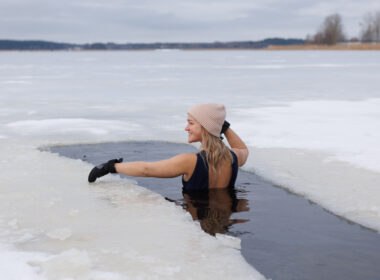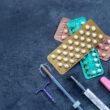It’s amazing how when a crisis such as a pandemic hits, the mundane or humdrum parts of life go on. This is ever true in reproductive life. We’ve written about how those trying to conceive, those currently pregnant, or those who recently gave birth have been affected by Covid-19. Now we want to shift the lens a bit to parents with older babies. Namely, parents who are considering weaning their babies from breastmilk, who have who recently weaned their babies, or who are considering starting their babies on solid foods. While breastfeeding (and weaning) is an extremely personal decision, there may be considerable benefits to extending breastfeeding during Covid-19.
The immunity boosting effects of breastmilk have long been touted. So…what’s a mom to do in a pandemic? Currently, the Centers for Disease Control and Prevention (CDC), World Health Organization (WHO), and the Academy of Breastfeeding Medicine (ABM) still support breastmilk being given to babies, even if the mother is infected with Covid-19. To date, the virus has not been found in the breastmilk of infected mothers, and so breastfeeding during the pandemic is still considered safe–and the myriad benefits of breastfeeding still remain.
For those considering weaning, consider extending breastfeeding during Covid-19
Again, while we recognize that weaning is a super personal decision that every parent must make for oneself, there are some implications worth considering in this specific moment in history.
Most of us have been quarantining away from the “outside world” for at least a few weeks now. While it’s good to flatten the curve and mitigate the cases of coronavirus, we aren’t being exposed to the usual flora of our community like we otherwise would. While that includes microbes of foul play (looking at you corona) it also includes all the good bacteria out there that help us fight everyday colds and build our immunity. We’re not being exposed to any of that right now—or if we are, it is in drastically limited amounts. What happens when we suddenly go back into the outside world? We can probably expect an onslaught of sickness-causing microbes. Breastmilk could considerably alleviate this.
We all know breastmilk has immunological properties. But how exactly does it work? Antibodies, which are also called immunoglobulins come in five forms: IgG, IgA, IgM, IgD and IgE. Where do these antibodies come from? The mom’s microbiome. Everything she eats, touches, breathes, basically everything she comes in contact with goes straight to her immune system which synthesizes antibodies. Further, when a baby nurses at the breast, microscopic amounts of their saliva get into the mom’s system, contributing to the calculations of which antibodies to produce.
So when businesses do open up, and shelter in place advisories are lifted, a baby (or even an older toddler, who are we kidding) who is receiving breastmilk has a considerable advantage entering the microbial world again.
As stated before, weaning is a highly personal decision. You may decide that the current benefits of weaning in your personal situation are greater than the immunological possibilities of continuing to breastfeed. You are the best person to make that decision!
For those who recently weaned
Thankfully, while the supply chain had an initial hurdle to climb, shelves at stores have been more or less stable over the course of Covid-19. Still, things have changed; most households are limiting their visits to the store as much as possible, and many of us can’t just hop over to the store for a gallon of milk or a dozen eggs. Given this new (hopefully temporary) reality, extending breastfeeding during Covid-19 could be a more sustainable option.
If you recently weaned and are wondering if you could possibly induce lactation again to ensure your little one gets those extra calories (and immunities!) there is good news—with a little patience and the right moves, you can most likely get that breastmilk back.
Redeveloping a milk supply will depend on 3 things:
-
How long mom was lactating after birth
Babies who nursed for longer than four months are more likely to have a strong and stable latch to restimulate a supply. Secondly, if a mom was lactating for four months or longer, their milk ducts are more likely to “pick it back up.”
-
How long the mom and baby have been weaned
The longer the mom has gone without nursing or pumping, the harder it will be to reinduce lactation. With that being said, it is possible to relactate even years after giving birth given the right circumstances. (Yes, this is how wet nurses once came to be!)
-
How cooperative the baby is
A mother-child dyad that had a strong breastfeeding relationship is more likely to pick it back up. If the baby never established a strong latch, it is unlikely for them to gain the skill at an older age. If a mom is interested in pumping, she can use the pump rather than the baby to stimulate her supply to come back.
The possibility of relactation comes down to one thing and one thing only: stimulation of prolactin. Prolactin can be stimulated by either a baby nursing at the breast or a pump at the breast. And you just go from there! A mom can begin pumping (or nursing) every 2-3 hours for 10-15 minutes each on both breasts. They may not see much in the beginning but after a few days, ideally, you would hope to see some drops. Those drops can become ounces within a week or 2. Hand expression can also be a helpful tool. And don’t forget lots of skin-to-skin contact with the baby!
For those considering starting solids
There’s no doubt that getting a photo of your little one with spaghetti all over her face (and the floor) feels like a milestone moment. Many parents are excited about the concoctions of food their baby will get to experience. However, it is worth noting that whenever you introduce a new food, you introduce the possibility of an immune response. In non-pandemic times, lactation consultants often recommend waiting to introduce solids until after flu season for this very reason, and especially for babies younger than 6 months. Ever noticed your little one getting bumps on their face after introducing a new food? It’s a totally normal immune response. The body recognizes something new and has to decide if it’s “safe” or not. While this is a normal part of food introduction, it does occupy the immune system a bit, leaving less space for it to ward off colds and viruses.
Culturally in the United States, babies eat solids earlier than other babies around the world, who comply with the WHO recommendations. The World Health Organization recommends a minimum 6 months of age before the introduction of solids. Age is also not the most indicative sign of readiness for solids. According to La Leche League, the signs of readiness are:
- Baby has “Pincer Grasp:” he can use pointer finger and thumb to pick up foods
- Ability to sit up unassisted, otherwise this can be a risk for choking
- Tongue thrust reflex has disappeared (ever wondered why your little one is pushing out food? It might not be because of the spinach, it could just be a reflex!)
- Baby has at least one tooth (if there are no teeth, their saliva lacks the enzymes to properly digest)
- Baby must be 6 months or older
In the time of Covid-19, it is worth considering holding off on introducing new foods, especially if your little one doesn’t check all the marks of readiness. Even if you have already begun introducing solids, for babies under one year of age, formula or breastmilk should still be the bulk of their calories. Therefore, especially for infants, it is worth considering extending breastfeeding during Covid-19. When the pandemic passes, you can get that photo, we promise.
These times are rife with uncertainty, especially for those caring for little ones. We’re all thinking about boosting immunity and wanting the best for our babies. I hope you found some helpful tips in this post! Find more Natural Womanhood articles on health and Covid-19 here.







